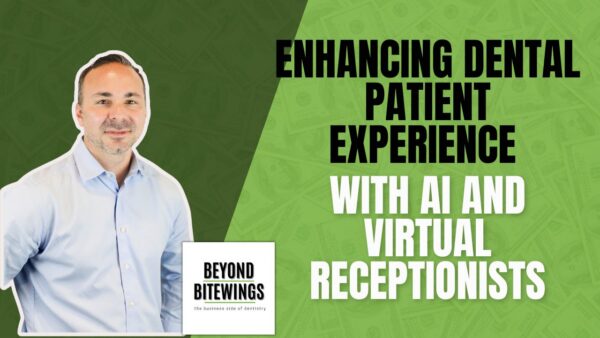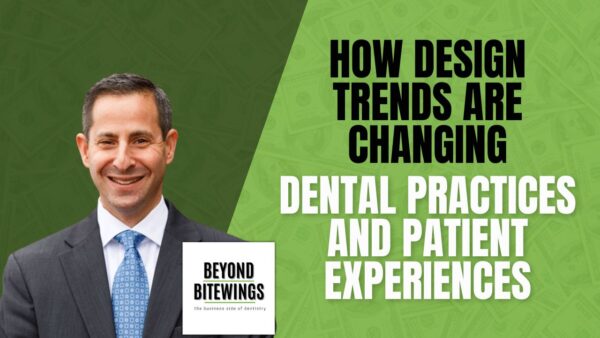In a recent Beyond Bitewings episode, Ash sat down with David Mitchell, Meija, a D3 dental student at Texas A&M, to discuss what dental students really need to know before entering the profession. While most of dental school focuses on clinical training, the conversation highlighted how critical it is to also prepare for the business and financial realities of running or joining a practice.
Mitchell, who earned an accounting degree before attending dental school, shared his curiosity about the practical steps new dentists should take to be ready for life after graduation. Ash’s first piece of advice was to recognize that no one succeeds alone. He emphasized the importance of building a team of experts early on, including professionals such as CPAs, lenders, and legal advisors, who can help navigate decisions about location, financing, and contracts. While it’s possible to research these topics independently, having trusted advisors makes it easier to sort through information and apply it to your unique situation.
Location and financing topped the list of early concerns for aspiring practice owners. Ash noted that choosing the right place to live and work impacts not only a dentist’s professional success but also their family life. Financing is another hurdle, and knowing what terms, structures, or lenders make sense for a new practice is often best evaluated with expert guidance. Building these relationships before graduation helps new dentists hit the ground running.
The discussion also turned to associate agreements. Too often, new graduates sign contracts without fully understanding compensation models, restrictive covenants, or exit clauses. Ash urged dental students to have these agreements reviewed by experienced professionals who know what’s typical for a given market. Negotiating for terms that reflect fair compensation and realistic restrictions can make a significant difference in long-term career flexibility.
Financial literacy was another recurring theme. From setting aside money for taxes to starting retirement savings early, new dentists must shift quickly from the world of student loans to managing real income. Ash stressed the value of working with financial professionals to create plans for debt repayment, tax compliance, and long-term savings. Starting early with even modest contributions can harness the power of compounding growth over time.
Finally, Mitchell asked about the differences between corporate dentistry (DSOs) and private practice. While Ash acknowledged there are benefits to both, he explained that DSOs, driven by investors, often prioritize efficiency and volume, which can sometimes reduce time spent with patients. This model may not suit every dentist, particularly those who value longer patient interactions. As the profession continues to evolve, understanding these differences will help new dentists choose the path that aligns best with their personal and professional goals.




